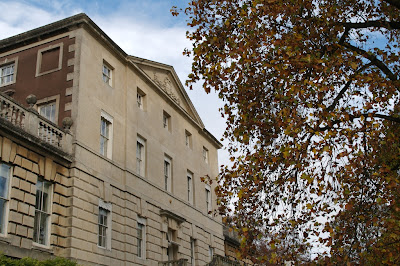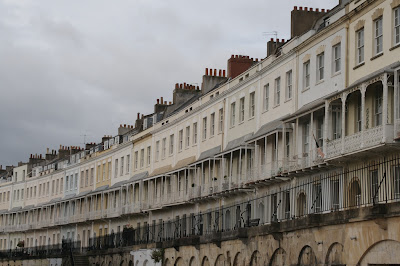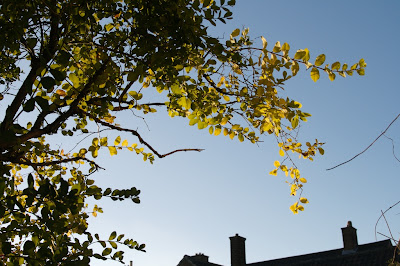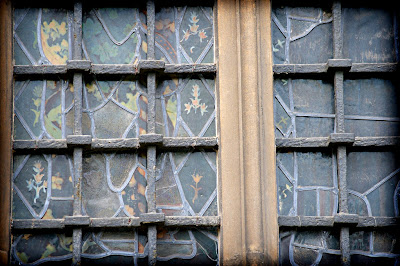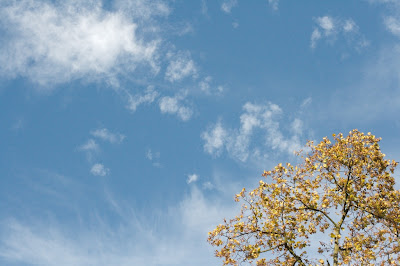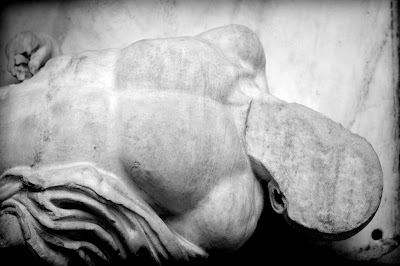Deafening.

I require a constant interior dialogue in order to keep myself patient, to keep from becoming self-censorious, to keep my flagrant wishing in check. Even talking to myself all the time doesn't stop it. I think of compulsive friends I've known--generally men--the ones who can't keep from straightening a thing put awry in their vicinity. I am not compulsive that way; for the most part I could care less where the things around me are. But my mind does get hold of ideas and hold them tight, keep them obsessively, turn them over and over and around, trying to keep them valid even when they're clearly not, and it's this tendency that my interior dialogues have been trying to override of late. Only: to work so hard at stopping them means that I still have those wrong ideas in play, and it's incredibly, incredibly difficult just to set them aside.
I walked around town today in a fog of my own creation, hearing only the low wrong note that had sounded in me during a conversation I'd just had, hearing it over and over and over, parsing every word of that quiet missing of beats that's happening where harmony should be. I realize now that I carried on this way for a good hour, maybe more--all the time it took me to make my way through back lanes to the big and shiny new John Lewis, all the time it took me to find their gloves and pick a pair to replace the ones I absently left in the cab home from the train station Friday night, all the time I fingered the purple silk dress from the Hobbs window, there for sale on the department store floor, all the time I chose a pillow and pillow cover for my reading chair.
It quieted a little by the time I reached the music store, picked out a book of scales and a book of manuscript paper, made my way out into the darkening side road, tried to figure out from the falling light just what time it was.
But it didn't stop altogether until I heard the man on Clare Bridge, the ripple of bass notes running up from his silhouette. It was dark enough by then--though it was only, I could see by the Clare clock, 4:40--that at first all I knew was sourceless sound. I had heard the notes while I was still in the college's court; I slowed down as I emerged between the court and the bridge, pausing in hopes that they'd sound again. And they did, and I followed them and found him. From where I was, he was ageless, maybe an undergraduate, maybe not, and rather than walk further and risk his stopping, I stayed in shadow where I was, took pictures of the tree, another tree I've come to love, pretended to be looking out toward the river
when actually I was rapt and reaching for a wordless note to leave with him, one I didn't find, didn't need because someone he knew walked up, stopped his evening song by greeting him, brought him back to the speech of familiars. And so it was that as I passed I didn't even smile.
Today was like that. When I finally had the chance to practice my own music, it was all I could do to quiet my head enough to be with what I was playing. There's so much I continue not to understand, so much that seems likely to remain utterly beyond comprehensibility, that sometimes I can't stand it.




